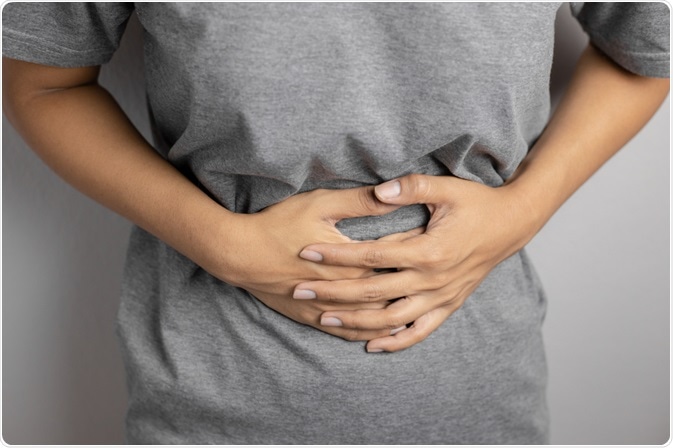What are the symptoms of a stomach ulcer?
Stomach ulcers, also known as peptic ulcers, occur when there is a sore or lesion in the lining of the stomach. Symptoms can vary but commonly include:
- Abdominal Pain: A burning or aching pain in the upper middle or upper left abdomen, which may improve or worsen with eating or taking antacids.
- Nausea and Vomiting: Feeling nauseous or actually vomiting, which may sometimes include blood or a substance that looks like coffee grounds.
- Indigestion: Persistent indigestion or discomfort, often accompanied by bloating or belching.
- Loss of Appetite: Decreased desire to eat, which may lead to unintentional weight loss.
- Bloating: A feeling of fullness or swelling in the abdomen.
- Heartburn: A burning sensation in the chest or throat due to acid reflux, which can accompany stomach ulcers.
- Dark or Tarry Stools: Stools that are black or have a tarry appearance, indicating possible bleeding in the stomach.
- Unexplained Weight Loss: Losing weight without a clear reason.
- Fatigue: Feeling unusually tired or weak, which can occur due to chronic blood loss from the ulcer.
If you experience severe symptoms, such as sudden and intense abdominal pain, difficulty breathing, or signs of internal bleeding, seek medical attention immediately. These could indicate complications such as perforation or significant bleeding, which require urgent care.
What are the causes of a stomach ulcer?
Stomach ulcers, or peptic ulcers, are caused by a variety of factors that damage the lining of the stomach. The main causes include:
- Helicobacter pylori Infection: A common bacterial infection that can lead to inflammation of the stomach lining and increase the risk of developing ulcers.
- Nonsteroidal Anti-Inflammatory Drugs (NSAIDs): Regular use of NSAIDs such as aspirin, ibuprofen, or naproxen can irritate the stomach lining and contribute to ulcer formation.
- Excessive Alcohol Consumption: Drinking large amounts of alcohol can irritate and erode the stomach lining, making it more susceptible to ulcers.
- Smoking: Tobacco use can increase stomach acid production and reduce the effectiveness of the stomach’s defenses against acid, contributing to ulcer formation.
- Stress: While not a direct cause, stress can exacerbate ulcer symptoms and contribute to the severity of the condition by increasing stomach acid production.
- Spicy Foods: While spicy foods do not directly cause ulcers, they can irritate an existing ulcer and exacerbate symptoms.
- Genetic Factors: A family history of ulcers or certain genetic factors can increase susceptibility to developing ulcers.
- Certain Medical Conditions: Conditions such as Zollinger-Ellison syndrome, which causes excessive acid production, can also lead to ulcers.
Managing these risk factors through lifestyle changes, medication, and appropriate treatment of underlying conditions can help prevent and treat stomach ulcers.
What is the treatment for a stomach ulcer?
Treating a stomach ulcer involves several approaches to heal the ulcer, reduce stomach acid, and address the underlying causes. Medications play a crucial role, including proton pump inhibitors (PPIs) like omeprazole and lansoprazole, which decrease stomach acid production and help heal the ulcer. H2-receptor antagonists, such as ranitidine, also reduce acid and are used when PPIs are unsuitable. Antacids can offer temporary relief by neutralizing stomach acid, while antibiotics may be prescribed if the ulcer is caused by a Helicobacter pylori infection to eliminate the bacteria. Cytoprotective agents like sucralfate help protect the stomach lining and promote healing.
Lifestyle and dietary changes are important in managing ulcers. It’s essential to avoid irritants like NSAIDs, alcohol, and quit smoking, which can worsen the condition. A diet that avoids spicy, acidic, or fatty foods can prevent aggravating the ulcer, and managing stress through relaxation techniques can also help reduce symptoms and prevent recurrence.
In rare cases, if the ulcer does not respond to medication or leads to complications such as bleeding or perforation, surgical intervention may be required to remove the ulcer or repair any damage. Regular follow-up with a healthcare provider is necessary to monitor the healing process and make any needed adjustments to the treatment plan. Adhering to the prescribed regimen and making lifestyle adjustments are key to effective treatment and prevention of ulcer recurrence.
What is a good diet for people with stomach ulcers?
For people with stomach ulcers, a diet that promotes healing and minimizes irritation is key. Here are some recommendations for a good diet:
Foods to Eat:
- High-fiber foods:
- Whole grains (oats, brown rice)
- Fruits (apples, bananas, pears)
- Vegetables (broccoli, carrots, spinach)
- Lean proteins:
- Skinless poultry (chicken, turkey)
- Fish (salmon, mackerel)
- Tofu and legumes (beans, lentils)
- Probiotic-rich foods:
- Yogurt (with live cultures)
- Kefir
- Fermented foods (sauerkraut, miso)
- Non-acidic fruits:
- Bananas
- Melons
- Papayas
- Healthy fats:
- Olive oil
- Avocados
- Flaxseeds
Foods to Avoid:
- Spicy foods:
- Hot peppers
- Chili powder
- Caffeinated beverages:
- Coffee
- Black tea
- Energy drinks
- Alcohol: Can irritate the stomach lining.
- Acidic foods:
- Citrus fruits (oranges, lemons)
- Tomatoes
- Processed and fried foods:
- Fast food
- Deep-fried snacks
- Chocolate: Can increase stomach acid production.
General Guidelines:
- Eat smaller meals more frequently to avoid overloading the stomach.
- Stay hydrated by drinking plenty of water, which helps in digestion and soothing the stomach lining.
- Avoid late-night eating, as it can lead to increased stomach acid.
This diet focuses on reducing stomach acid and irritation while providing nutrients that support healing. If the ulcer is caused by H. pylori bacteria, treatment with antibiotics and a proper diet can aid recovery. Always consult a doctor or dietitian for personalized advice.

Leave a Reply
You must be logged in to post a comment.